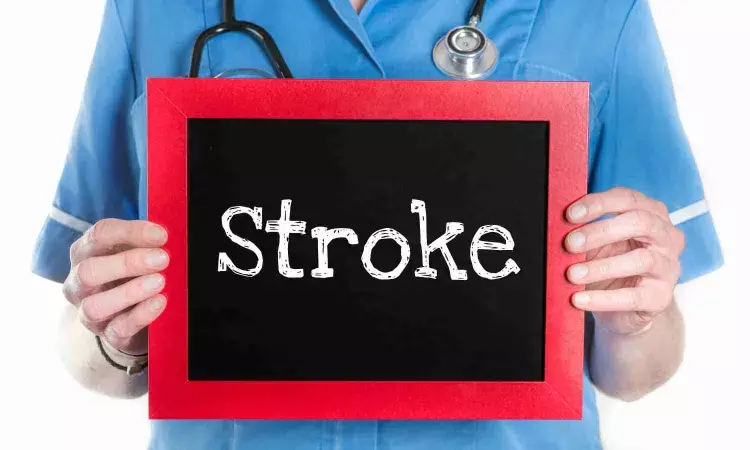- Home
- Medical news & Guidelines
- Anesthesiology
- Cardiology and CTVS
- Critical Care
- Dentistry
- Dermatology
- Diabetes and Endocrinology
- ENT
- Gastroenterology
- Medicine
- Nephrology
- Neurology
- Obstretics-Gynaecology
- Oncology
- Ophthalmology
- Orthopaedics
- Pediatrics-Neonatology
- Psychiatry
- Pulmonology
- Radiology
- Surgery
- Urology
- Laboratory Medicine
- Diet
- Nursing
- Paramedical
- Physiotherapy
- Health news
- Fact Check
- Bone Health Fact Check
- Brain Health Fact Check
- Cancer Related Fact Check
- Child Care Fact Check
- Dental and oral health fact check
- Diabetes and metabolic health fact check
- Diet and Nutrition Fact Check
- Eye and ENT Care Fact Check
- Fitness fact check
- Gut health fact check
- Heart health fact check
- Kidney health fact check
- Medical education fact check
- Men's health fact check
- Respiratory fact check
- Skin and hair care fact check
- Vaccine and Immunization fact check
- Women's health fact check
- AYUSH
- State News
- Andaman and Nicobar Islands
- Andhra Pradesh
- Arunachal Pradesh
- Assam
- Bihar
- Chandigarh
- Chattisgarh
- Dadra and Nagar Haveli
- Daman and Diu
- Delhi
- Goa
- Gujarat
- Haryana
- Himachal Pradesh
- Jammu & Kashmir
- Jharkhand
- Karnataka
- Kerala
- Ladakh
- Lakshadweep
- Madhya Pradesh
- Maharashtra
- Manipur
- Meghalaya
- Mizoram
- Nagaland
- Odisha
- Puducherry
- Punjab
- Rajasthan
- Sikkim
- Tamil Nadu
- Telangana
- Tripura
- Uttar Pradesh
- Uttrakhand
- West Bengal
- Medical Education
- Industry
iTalkBetter app significantly improves speech in stroke patients, suggests research

A UCL-developed app that provides speech therapy for people with the language disorder aphasia has been found to significantly improve their ability to talk.
iTalkBetter, developed by the Neurotherapeutics Group at the UCL Queen Square Institute of Neurology, provides users the digital platform to practice over 200 commonly used words, in their own time and without any limits on the amount of therapy they receive.
While employing games to maintain engagement, the app’s integrated speech recogniser analyses speech in real time to give the user feedback on whether they have named the displayed item correctly.
A new study, published in eClinicalMedicine, found that when used over a six-week period for around 90 minutes per day, iTalkBetter significantly improved patients’ ability to name items by 13% for the 200 commonly used words. Importantly, spontaneous speech was also found to improve.
Aphasia occurs when a person suffers brain damage, usually to the organ’s left side, leading to difficulties with speech or language. The most common causes are stroke, severe head injury and brain tumours.
Symptoms can vary widely from person to person. However, most people with aphasia have some trouble with their speaking, and may also experience issues with writing, reading and listening.
Currently, the NHS provides around 12 hours of speech and language therapy with further face-to-face therapy available via some charities or privately.
Corresponding author, Professor Alex Leff (UCL Institute of Cognitive Neuroscience and UCL Queen Square Institute of Neurology), said: “Most health care systems massively under dose people with aphasia in terms of the hours of speech language therapy that they are provided with. App delivered therapy is one solution to this problem.
“This is the first randomised controlled trial of an app designed to improve speaking that transfers to a naturalistic speaking task and show an effect on connected speech.”
The researchers tested the app in a phase II randomised clinical trial on 27 people with aphasia as a result of a stroke, between September 2020 and March 2022.
Researchers also used structural and functional magnetic resonance imaging (MRI) to see what happened in the brains of participants when using the app.
Structurally, they found that brain regions related to language perception, production and control increased in volume after practice with iTalkBetter.
Professor Leff added: “This is the first task-based fMRI study in people with aphasia to identify dose-related changes in brain function. The more people with aphasia practiced, the more they were able to activate key auditory processing areas in the undamaged hemisphere.”
iTalkBetter will soon be rolled out as an app available to all suitable patients to use.
Reference:
Catherine Doogan, Victoria Fleming, Pedro Quijada Leyton, David Barbera, Peter Zeidman, Efficacy of a gamified digital therapy for speech production in people with chronic aphasia (iTalkBetter): behavioural and imaging outcomes of a phase II item-randomised clinical trial, EClinicalMedicine, https://doi.org/10.1016/j.eclinm.2024.102483.
Dr Kamal Kant Kohli-MBBS, DTCD- a chest specialist with more than 30 years of practice and a flair for writing clinical articles, Dr Kamal Kant Kohli joined Medical Dialogues as a Chief Editor of Medical News. Besides writing articles, as an editor, he proofreads and verifies all the medical content published on Medical Dialogues including those coming from journals, studies,medical conferences,guidelines etc. Email: drkohli@medicaldialogues.in. Contact no. 011-43720751


